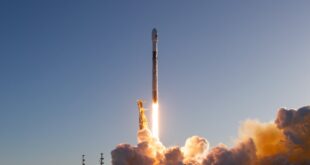
Edinburgh, 27 June 2022. – An innovative and practical tool to support space actors in more sustainable mission design and operations, the Space Sustainability Rating (SSR) hosted by the eSpace-EPFL Space Center, launched last Thursday.
The SSR encourages, recognises, and rewards, space actors who enforce sustainable space missions with a unique rating system. It aims to help the appraisal of the missions’ impact on the space environment and other operators, while offering practical guidance.
The SSR is the product of the World Economic Forum’s Global Future Council (GFC) on Space’s program to incentivise safer behaviour in space. The GFC appointed experts from ESA, MIT, BryceTech and the University of Texas at Austin to develop a rating system. eSpace-EPFL Space Center was later selected to propel the application of the resulting SSR.
Companies like Airbus, Astrocast, Axelspace, CHESS, Lockheed Martin, Planet, SpaceX, and Voyager Space Holdings have participated in the beta-testing phase of the methodology.
Seven organisations have already joined SSR, including founding members Nihon University and Stellar. Alter group, EnduroSat, Privateer, the Secure World Foundation and Slingshot Aerospace have also entered the program providing expertise to enhance the rating system.





